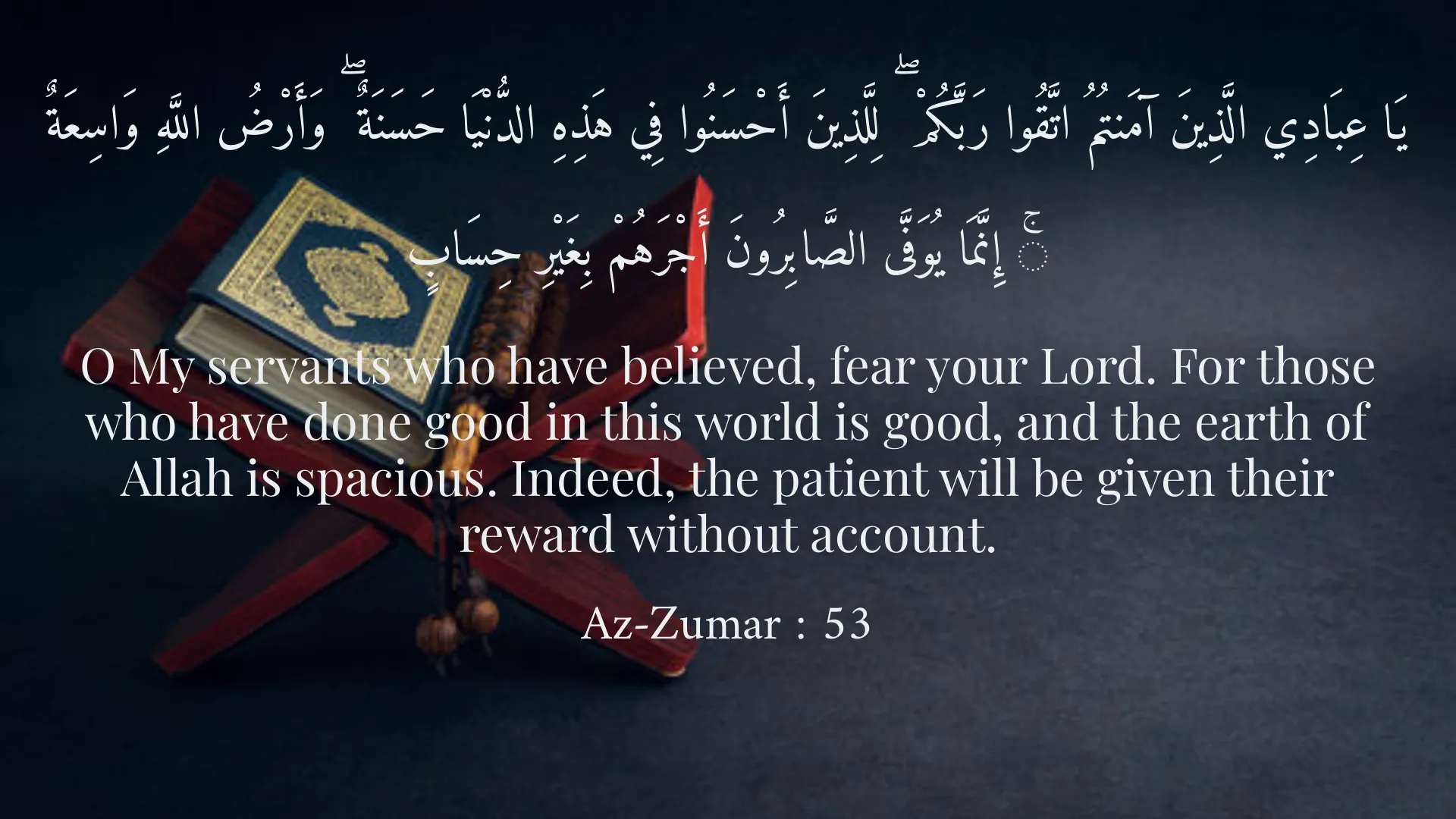Quranic Answer

The concept of sin and its implications has been a topic of profound significance in many religious traditions, not least in Islam, where the Holy Quran provides a comprehensive framework for understanding the nature of sin and the mercy of Allah. In the Holy Quran, Allah addresses the concerns and thoughts of humans regarding their sins, addressing the psychological and spiritual impact of such reflections on individuals. Humans are inherently fallible, and the prospect of sin often leads to feelings of guilt, shame, and despair. However, within this struggle lies an immense opportunity for growth and self-improvement that should not be overlooked. Reflection on one's sins can hold tremendous value, particularly when it catalyzes a genuine desire for repentance and corrections in behavior. Self-reflection can promote a deeper understanding of one's weaknesses and motivate individuals to seek forgiveness and pursue a path of righteousness. However, it is crucial to recognize that excessive dwelling on sins can lead to a detrimental outcome. If individuals become trapped in a cycle of regret and hopelessness, it may distance them from the divine grace and mercy of Allah. In Surah Az-Zumar, verse 53, Allah reassures His servants with the magnificent promise of His boundless mercy. He invites all who have sinned to turn towards Him, emphasizing that they should not abandon hope in His forgiveness, regardless of the magnitude of their transgressions. This verse serves as a powerful reminder that Allah's compassion far exceeds human shortcomings. The significance of this reassurance cannot be understated. It implies that while acknowledging and contemplating one's sins is necessary for personal and spiritual growth, it must be accompanied by steadfast hope in Allah's mercy. Many individuals may fear their shortcomings will permanently sever their connection to their Creator. However, the Quran consistently emphasizes that repentance (Tawbah) is a means of restoring this connection. In Surah Al-Baqarah, verse 218, the Quran reaffirms that Allah is the Most Forgiving and advises those who have sinned to actively seek forgiveness and return to His divine guidance. Seeking forgiveness involves a sincere and heartful engagement with Allah through prayer, supplication (Dua), and repentance. It signifies the acknowledgment of one’s transgressions and the desire to amend one's behavior in the future. For individuals grappling with remorse over their sins, it can be tempting to succumb to negative thoughts and beliefs regarding their worthiness of forgiveness. These dark thoughts can create a barrier between the believer and the divine. It is imperative, therefore, that individuals consciously choose to replace despair with hope, no matter how overwhelming their thoughts of inadequacy may seem. Observing the recommended practices in Islam, such as prayer (Salah) and fasting (Sawm), can help individuals redirect their energy towards positive actions. Engaging in acts of worship allows for a spiritual reset, framing the experience of sin within the context of God’s greater forgiveness. When individuals pray, they not only seek forgiveness for their misdeeds but also cultivate a stronger connection with Allah through submissions of their hearts, opening themselves to His endless mercy. Moreover, striving to perform good deeds acts as an antidote to feelings of guilt or despair. When individuals focus on righteous actions, they reinstate a sense of purpose and worthiness in their lives. Participating in acts of charity, helping those in need, and fostering positive relationships within their community can be a powerful means for healing. Such active engagement not only fosters personal growth but also contributes positively to the souls of those around them, thereby creating a cycle of goodness that uplifts spirits. It is essential to remember that the journey of repentance is not merely a one-time event but a continuous process. Spiritually motivated individuals should foster a mindset of lifelong growth. Embracing one's flaws while continuously striving for better delivery of faith illustrates the ongoing pursuit of excellence in one's relationship with Allah. In conclusion, reflecting on one's sins is an intrinsic aspect of the human experience that, when approached with the right mindset, can pave the way for profound change and spiritual renewal. It is vital to balance moments of self-contemplation with a robust belief in Allah's unfathomable mercy. The Quran offers profound guidance in maintaining this balance, encouraging all who err to seek forgiveness, engage with their faith, and cultivate good deeds. The ultimate message is clear: Allah is ever-willing to forgive those who turn to Him with sincerity and hope, urging all believers to remember that their sins do not define them, but rather the path they choose to take thereafter reflects their true devotion to the Creator.
Related Verses
يَا عِبَادِي الَّذِينَ آمَنتُمُ اتَّقُوا رَبَّكُمْ ۖ لِلَّذِينَ أَحْسَنُوا فِي هَذِهِ الدُّنْيَا حَسَنَةٌ ۖ وَأَرْضُ اللَّهِ وَاسِعَةٌ ۚ إِنَّمَا يُوَفَّى الصَّابِرُونَ أَجْرَهُمْ بِغَيْرِ حِسَابٍ
O My servants who have believed, fear your Lord. For those who have done good in this world is good, and the earth of Allah is spacious. Indeed, the patient will be given their reward without account.
Az-Zumar : 53
إنما وليكم الله ورسوله والذين آمنوا الذين يقيمون الصلاة ويقيمون الزكاة وهم راكعون
Your ally is none but Allah and His Messenger and those who have believed – those who establish prayer and give zakah, and those who bow [in worship].
Al-Baqarah : 218
Short Story
Once upon a time, there was a young man named Yusuf who constantly pondered his sins. He felt that he could no longer draw close to Allah. One day, he went to the marketplace and met a wise person. The wise man told him, 'Do not think that Allah has abandoned you. He is always waiting for your return.' Yusuf recalled the verses of the Quran and decided to move toward self-correction and seek forgiveness from Allah. He realized that his negative thoughts were leading him away from God, and now he could continue his life with hope and the light of faith.